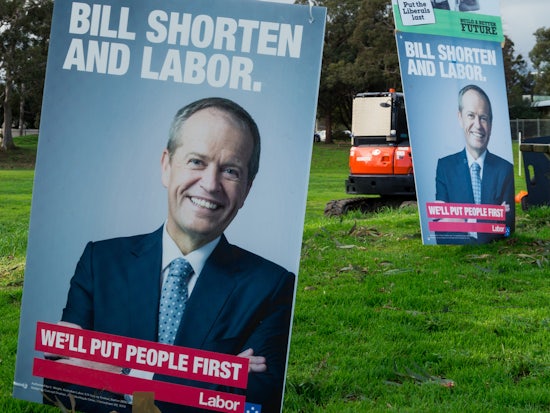Opposition and sector back Budget’s lack of aged care focus
Following on from last week’s 2018-19 Federal Budget announcement, Opposition Leader Bill Shorten has come forward with his Budget reply, with the support of one of the nation’s leading aged care peak bodies.

Opposition Leader Bill Shorten has publicly shared his stance and made a commitment to dementia in Australia (Source: Shutterstock)
Mr Shorten’s Budget reply, addressed in Canberra on 10 May, highlighted a number of Labor’s key issues within the Turnbull Government’s Budget – including lack of funding and support for Australian hospitals, youth, the elderly and the growing aged care sector.
In his reply and own Budget Plan, Mr Shorten says Labor’s wants to “bring the Fair Go back into the heart of our nation” and give a “Fair Go” to the real forgotten people: working families, pensioners and Australians doing it tough.
“The Prime Minister is still cutting $14 a fortnight from pensioners, still telling Australians to work until they’re 70 – with no idea what it means for people who’ve spent their lives doing jobs that are hard on their bodies and tough on their backs,” Mr Shorten said in his reply.
“But I actually think one of the sneakiest tricks in this year’s budget is the fraud it has perpetrated on Australians in need of aged care.
“Around 105,000 older Australians are waiting for home care packages, but despite all the hype, the Government is offering only 14,000 places over the next four years.
“14,000 places in four years, when 20,000 people joined the waiting list in the last six months alone.”
Mr Shorten also highlighted in his reply that “worse still” we learned that there is no new funding – that the Government is simply taking the money away from residential care places and putting in home care places.
“The people who raised us and cared for us and love us – deserve so much better than this money-go-round in aged care then cuts to their energy supplement and the world’s oldest retirement age,” he says.
He adds that if made Prime Minister, tackling dementia and delivering better aged care will be a “national priority backed by real resources”.
Following Mr Shorten’s Budget reply, the Turbull Government hit back saying his address “offered nothing to support older Australians”.
“In comparison this week alone, the Turnbull Government delivered a record $5 billion Budget boost,” the statement by Minister for Health Greg Hunt and Minister for Aged Care Ken Wyatt says.
“Funding is growing from $18 billion in 2017-18 to $23 billion in 2021-22 – totalling $86 billion.
“Under the Coalition, every year home care packages are up, residential aged care places are up and aged care funding is up.
“We are delivering an additional 20,000 home care package, 13,500 residential places, and the largest ever single increase to mental health funding for older Australians.”
The Minister’s add that the Turnbull Government is “fixing Labor’s home care mess”, providing transparency and delivering significant long term reforms to support older Australians, noting that the latest data shows that almost half of those on the home care queue are already receiving interim home care.
“This support is on top of our $5.5 billion investment in the Commonwealth Home Support Programme, delivered in last year’s Budget, which assists around 800,000 older Australians,” the Ministers say.
“We will continue to deliver real support for the older Australians who built this nation.”
Mr Shorten’s key points from his Budget reply have struck a chord with national aged care peak body Aged and Community Services Australia (ACSA) who have welcomed Labor’s promises to make resourcing of aged care a national priority with Chief Executive Officer (CEO) Pat Sparrow saying the organisation looks forward to more details of the policy and investment steps supporting his vision.
“We are pleased to see the Opposition grasp this challenge as a national priority and we look forward to learning more about the sorts of steps they would take, if elected, to ensure aged care services get the funding they so desperately need.
“Pledging to make aged care a priority is a positive step forward but one that needs to be backed up with commitment to resourcing that vision.
“We look forward to more details from the Opposition Leader of what policy and new investment he would commit to elevate aged care to national priority status.”
ACSA adds that they hope to move the discussion forward and look at the best ways “we, as a sector and community” can plan and provide for the future care needs of the nation’s rapidly ageing population.
The full Opposition Budget Reply speech can be found online with the Turnbull Government’s 2018-19 Federal Budget also available to view online.











![The new Aged Care Act exposure draft is slated for release in December of 2023, but advocates hope to see it rolled out on January 1, 2024. [Source: Shutterstock]](https://agedcareguide-assets.imgix.net/news/articles/wp/agedcareact__0811.jpg?fm=pjpg&w=520&format=auto&q=65)












Comments